The Jewish Museum
39, Nikis St. 10557 Athens
Tel: (+30) 210 322 5582
Fax: (+30) 210 323 1577
Opening hours:
Daily 9:00 14:30
Sunday 10:00 14:00
Saturday closed
The Museum was founded in 1977 in order to collect, conserve, research and exhibit the material evidence of 2300 years of Jewish life in Greece. Its collection, which is continuously enriched, consists of seven and a half thousand original artifacts, photographs, documents and archives, and includes diverse material pertaining to the domestic and religious life, as well as the historical course of the Greek Jews.
The permanent exhibition illustrates subject areas such as the synagogue, the Jewish Holidays, traditional costumes, the Holocaust, the cycle of life and more.
Don’t miss the reconstruction of the 19th-century synagogue of Patras.
Ancient Synagogue
In the heart of the ancient Agora
Below the Acropolis on the edge of Monastiraki- entrance on Adrianou St.
Tel: (+30) 210 321 0185
In the ancient Agora of Athens is a site that may well be that of a synagogue dating back to the third century C.E. The Germans excavated this area in the early 1930s and found a small Pentelic marble revetment piece nearby, on which was carved a menorah and part of a lulav. The proximity of this revetment fragment to the foundations of a synagogue-like structure supports the view that this site may be the ancient synagogue of the city that was destroyed during the 6th century.
Modern Synagogues of Athens
5 & 8 Melidoni St.
Open daily from 9:00 to 13:00
Tel: Community offices: (+30) 210 325 2875 210 325 2823
Rabbi J.Arar (+30) 210 325 2773
The two surviving modern synagogues of Athens are both on Melidoni St. facing each other across the street:
The older of the two is located at 8 Melidoni St. and today, its building houses the community offices. The synagogue bears the title of Etz Hayyim, a name usually used by Romaniote Jews (Jews whose origin in Greece goes back to the 3rd century B.C.E, as opposed to the Sefardic Jews, who arrived in Greece in the 15th century after being expelled from Spain and Portugal). It is used today essentially during the High Holidays.
The newer of the two synagogues, called Beth Shalom, is located at 5 Melidoni St. The exterior is in white Pentelic marble in neo-classic style. The interior decorations, including the bronze-paneled wall of the equal and the windows, were completed in 1975. The echal proper dates from the late 30s.
Jewish senior’s home RESTEION
Contact person: Monis Halegoua
180, Labtron str, P.O. Box 185,
Doussi Koropi 194 00, Attica
tel.: +30 210 96.56.736-9
fax: +30 210 89.79.559
e-mail: info@restion.gr
website: www.resteion.gr
A beautiful and modern building which was built with the support of the Claims Conference and thanks to the generosity of the Restis family and other donors of the community, the Resteion lies in the southern suburb of Athens in a beautiful setting. To visit and for more information, see their website.
Cemetery and Holocaust monument
In the third cemetery of Athens, in the suburb of Nikea, Piraeus
History Jews of Athens
Athens, one of the world’s most celebrated cities, has always been a bustling cosmopolitan capital.
In the heart of the Agora, a mere stones throw from the Acropolis, stood an unusual building believed by some scholars to have been the first synagogue in Greece dating back to the 5th century B.C.E.
During the time of Alexander the Great and in the centuries that followed, Jewish life was concentrated in the northern part of Greece. Not until the 19th century, when Greece gained its independence from the Turks, did a Jewish community begin to grow and prosper in Athens. Legal recognition came in 1889 when the Jewish community was large enough to be formally recognized as a religious minority.
The synagogue at 5, Melidoni St. was built in 1905 to accommodate the growing community that numbered 3000 by the 1940s. Although the Holocaust took its greatest toll on the Jews of Thessaloniki, Athens was also a center of Nazi persecution. The Germans began rounding up Jews in 1943 and in one year, 800 Athenian Jews were sent to the camps.
Many Jews were saved however through the heroic efforts of the Greek Police and Greek resistance. Aided by the Greek Orthodox Church, some Athenian Jews went into hiding and escaped by boat to Asia Minor and eventually to Palestine.
At the termination of the war, the Athens community grew substantially, as a consequence of the resettlement of Jews from communities that no longer existed, combined with the natural attraction of a growing capital. Today, more than two-thirds of Greek Jews reside in Athens.
Based in part on Jewish Sites and Synagogues of Greece –
Nicholas P. Stavroulakis and Timothy J. DeVinney – Talos press

